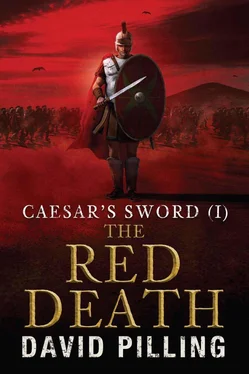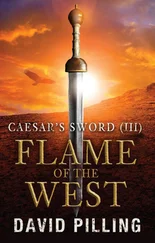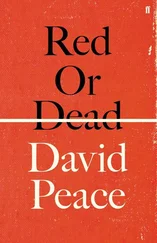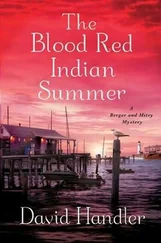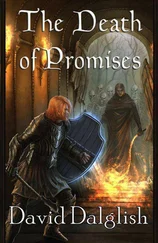David Pilling - The Red Death
Здесь есть возможность читать онлайн «David Pilling - The Red Death» весь текст электронной книги совершенно бесплатно (целиком полную версию без сокращений). В некоторых случаях можно слушать аудио, скачать через торрент в формате fb2 и присутствует краткое содержание. Год выпуска: 2013, Жанр: Исторические приключения, на английском языке. Описание произведения, (предисловие) а так же отзывы посетителей доступны на портале библиотеки ЛибКат.
- Название:The Red Death
- Автор:
- Жанр:
- Год:2013
- ISBN:нет данных
- Рейтинг книги:4 / 5. Голосов: 1
-
Избранное:Добавить в избранное
- Отзывы:
-
Ваша оценка:
- 80
- 1
- 2
- 3
- 4
- 5
The Red Death: краткое содержание, описание и аннотация
Предлагаем к чтению аннотацию, описание, краткое содержание или предисловие (зависит от того, что написал сам автор книги «The Red Death»). Если вы не нашли необходимую информацию о книге — напишите в комментариях, мы постараемся отыскать её.
The Red Death — читать онлайн бесплатно полную книгу (весь текст) целиком
Ниже представлен текст книги, разбитый по страницам. Система сохранения места последней прочитанной страницы, позволяет с удобством читать онлайн бесплатно книгу «The Red Death», без необходимости каждый раз заново искать на чём Вы остановились. Поставьте закладку, и сможете в любой момент перейти на страницу, на которой закончили чтение.
Интервал:
Закладка:
My reins were jerked savagely to the left as I fell, and my horses followed suit. The Green with the long curly hair was forced to draw on all his skill to avoid the collision. He succeeded, just, and my chariot rattled away to safety.
It came to a halt just below the marble seats where the senators and other wealthy men of the city enjoyed a privileged view of the races. Attendants rushed to calm my horses and release them from the traces, while kind hands picked me up and laid me gently on the ground.
I was still dazed, and my vision took some time to clear as someone pressed a sponge soaked in vinegar against my bleeding head.
“Be careful with him,” said a rough, vaguely familiar voice – it was Aquila – and I was lifted carefully onto a stretcher. I blinked, and glimpsed a row of gorgeously-robed old men standing and clapping as I was carried out of the arena.
“Britannicus! Britannicus! Britannicus!”
The senators were not alone in applauding me. My nickname echoed around the Hippodrome like a storm. I tried to protest, but no-one heard my feeble bleats.
God threw a cloak of darkness over me. My eyes dimmed, and I knew nothing more until I woke in the sanatorium.
Chapter 9
The Blues and the Greens wisely kept their own sanatoriums in separate wings of the Hippodrome, or else the patients would have tried to do each other mischief. My head injury was not serious, and healed far quicker than the whip-mark on my cheek, which left a permanent white scar as a memento of my first race.
After examining my skull and stitching up my cheek, the Greek doctor ordered that I should keep to my bed for no longer than a week.
I had plenty of visitors during that time, mostly from fellow Blues eager to congratulate me on my part in the race. We had won, and one of our charioteers had finished half a lap ahead of the enemy. My role in eliminating two of the Greens early in the race, and then distracting their two best men, was deemed vital.
My first visitor was Felix, fresh from his own exploits in the arena, where he had beaten two Green boxers senseless and fought a third to a draw. He had grown into a squat, brawny young man, entirely suited to his trade. His face, which might otherwise have been handsome, bore the marks of years of pummelling, and his blocky fists were forever swollen and bruised.
“One half of the city sings your praises,” he said excitedly, “while the other half wishes you in the lowest circle of Hell. Do you know what I saw yesterday? People in the street making and selling clay dolls in your image for Green supporters to drive pins into. What do you make of that?”
“I think it is madness,” I groaned, lying back on my pillows and rubbing my head, “most of what I did in the arena was more accident than design.”
Felix patted my knee in sympathy. “I’m afraid it doesn’t matter. Passions are running very high at the moment, and the violence on the streets has worsened since the race. Some of our more extreme supporters are using your name to taunt the Greens. There are fights every night. One man has already died from a knife-wound.”
Clashes between rival gangs of Blues and Greens was nothing unusual after a race, but the knowledge that I had indirectly caused a man’s death distressed me.
“That was my first and last race,” I said weakly, “I am done with it.”
“I cannot comfort you there, either. The prize-money was considerable, but most of it has already been shared among the other charioteers. Leo will be along later with what is left.”
Leo did come, late in the evening when I was drowsing under the influence of some foul-smelling narcotic the Greek doctor had dosed me with. His insouciant manner was exaggerated by drink, and his darkly handsome features took on a malevolent appearance in the murky half-light of the sanatorium.
“Our latter-day Achilles,” he said, stopping at the foot of my bed, “slayer of more Greens than the plague. I salute you.”
I caught a whiff of strong wine on his breath, and he swayed slightly as he smiled that old crooked smile I had come to know and loathe. He carried a box of some dark polished wood in his hands.
“Aquila ordered me to bring this to you,” he added, lifting the lid so I could see the contents, “and Aquila’s word is law.”
Inside was a laurel wreath set on a purple cushion, and a number of silver coins. A very small number.
“I might have spent some of it on the way here,” said Leo, stifling a belch, “the wine-shops near the Black Gate are most distracting.”
He was mocking me, of course, and trying to make me lose my temper. It took an effort of will to deny him the satisfaction. We had never been friends, though he recognised my value to the Blues as a charioteer. Leo was a dark and subtle character, and kept his true motives well-hidden.
“My thanks,” I said with strained courtesy, “please leave the box at my bedside. I shall treasure the wreath.”
“I will see you soon, Britannicus,” he called out as he left, “very soon.”
I have no memory of what became of that wreath. Wretched thing. The Romans set great store by these symbols of victory, and crowned their Emperors with them. To me it was a worthless arrangement of leaves.
Elene, my Greek lover, did not come to visit me. This further soured my spirits, and I went in search of her as soon as I was judged fit enough to leave the sanatorium. Mindful of my unwanted celebrity, I borrowed a hooded cloak before venturing out into the streets.
Most of the athletes had quarters at the Hippodrome, but Elene was a mere dancer, and rented lodgings above a shop in a poor back-street not far from the arena. I looked there first, but the shutters were fastened and the shopkeeper claimed not to have seen her all day.
I eventually found her in a darkened corner of a nearby inn, picking moodily at a platter of bread and mizithra , a white cheese made from goat’s milk. Elene was picking listlessly at her food, and seemed more intent on listening to the doleful melody plucked by a lyre-player on the little stage.
She did not look at me as I fetched a spare stool and sat next to her. I was used to her unpredictable moods, and waited patiently for her to break the silence.
“I have lost you, Britannicus,” she said after several aeons had gone by.
“Lost me? What do you mean?” I demanded. Her narrow Hellenic features, which I was used to seeing alive with passion, wore a sombre, defeated expression that made her look old. She bit her lip and slowly shook her head.
“You did too well in the race,” she replied, still refusing to look at me, “four days ago I received a message at my lodgings. It was a warning. I am instructed to let you go.”
The thought of anyone warning or threatening Elene, whom I thought I loved, filled me with rage. “Who gave you this message?” I hissed, earning a black look from the musician onstage. “Was it from the Greens? Do they mean to strike at me through you?”
“No,” she replied calmly, “not the Greens. I would have scorned any threat from them. But I dare not ignore this.”
“Dare not? Who has the power to frighten you?”
Elene finally turned her face to mine. Tears glimmered in her eyes as she laid her hand on my wrist. “You must come with me, Coel,” she said sadly – she was one of the few who addressed me by my real name – “if I must hand you over, I would do it quickly.”
Baffled, I allowed her to lead me out of the taverna. She ignored my barrage of questions and led me through the streets towards a section of the waterfront known as the Harbour of Julian. Here there was a small port, much-used by merchants and visiting dignitaries due to its proximity to the Hippodrome and the Great Palace.
Читать дальшеИнтервал:
Закладка:
Похожие книги на «The Red Death»
Представляем Вашему вниманию похожие книги на «The Red Death» списком для выбора. Мы отобрали схожую по названию и смыслу литературу в надежде предоставить читателям больше вариантов отыскать новые, интересные, ещё непрочитанные произведения.
Обсуждение, отзывы о книге «The Red Death» и просто собственные мнения читателей. Оставьте ваши комментарии, напишите, что Вы думаете о произведении, его смысле или главных героях. Укажите что конкретно понравилось, а что нет, и почему Вы так считаете.
